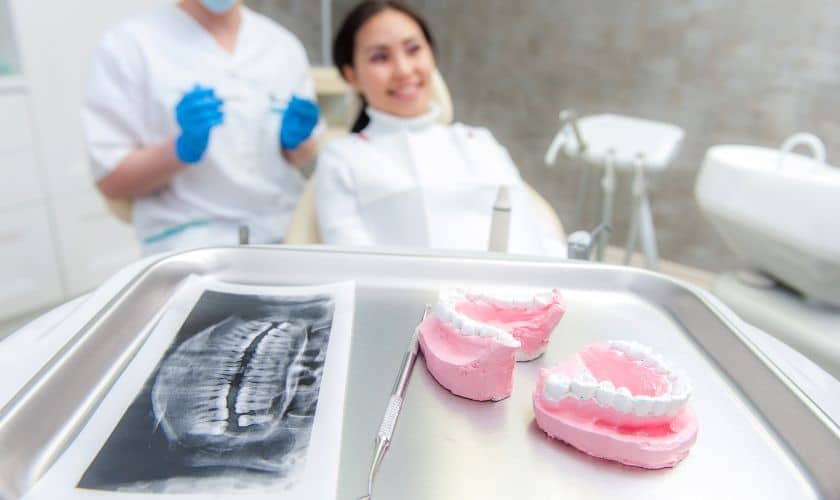
Get a Permanent Solution to Your Missing Tooth
Introduction: We all dread having to face the pain and discomfort of a missing tooth. It can be embarrassing, cause us to feel insecure, and affect our oral health. Fortunately, advances in modern dentistry have made it possible to replace a missing tooth with an effective, permanent solution.
Dental implants offer the ultimate replacement for missing teeth – providing many benefits over traditional treatments such as bridges and crowns. In this blog, we will explain why dental implants are the best solution for missing teeth, and answer some frequently asked questions about the procedure.
Dental Implants – The Best Solution for Missing Teeth
Dental implants are a popular and effective treatment for missing teeth. They are made from titanium, which is a strong and durable material that is compatible with the human body. This makes dental implants a safe and reliable way to replace missing teeth.
The implant itself is inserted directly into the jawbone, forming a secure anchor point for the new tooth. The artificial tooth – usually made from porcelain – is then securely attached to the implant, restoring your smile in a natural-looking way.
Unlike bridges, which require the teeth on either side of the gap to be filed down and crowned, dental implants do not affect surrounding teeth. They are also more durable than traditional treatments, with a lifespan of up to 20 years or more.
i. Benefits of Dental Implants
Dental implants have many advantages over traditional treatments. As well as being more durable and secure, they are also more comfortable to wear. This is because the implant fits securely into the jawbone, providing a firm anchor for the artificial tooth.
Dental implants also look and feel just like natural teeth, so you can smile with confidence knowing your artificial tooth looks completely natural. This makes them a great option for those who are self-conscious about their missing tooth.
The other key benefit of dental implants is that they can help to preserve your oral health. As the implant is fitted directly into the jawbone, it helps to stimulate bone growth and prevent further deterioration. This ensures that your remaining teeth remain firmly in place and your jawbone remains healthy.
ii. The Dental Implant Procedure
The dental implant procedure is usually carried out under local anesthesia, with the patient remaining awake throughout. Before the procedure begins, an image of the mouth will be taken to guide the placement of the implant. Then, a small incision is made in the gum to access the jawbone, and a hole is drilled into the bone to make room for the implant.
Once the implant is in place, it will be left to heal for several weeks before the artificial tooth is attached. During this time, it’s important to look after your teeth and gums by brushing and flossing twice daily.
iii. After Care and Maintenance
Once the implant is in place, it should last for many years with the right aftercare and maintenance. It’s important to brush and floss your teeth twice daily as normal, as this will help to keep your gums healthy and prevent plaque buildup.
It’s also important to attend regular check-ups with your dentist, who will be able to ensure the implant is in good condition and answer any questions you may have.
Conclusion:
Dental implants offer a permanent solution for missing teeth, with many benefits over traditional treatments. They are more comfortable to wear, look and feel like natural teeth, and can help to preserve oral health by stimulating bone growth. The procedure is also relatively straightforward and can be carried out under local anesthesia.
With the right aftercare and maintenance, dental implants should last for many years – providing a
secure and natural-looking solution for missing teeth.
With the right aftercare and maintenance, dental implants can last for many years – usually up to 20 years or more.
The implant procedure is usually carried out under local anesthesia, so the patient remains awake throughout.
No – unlike bridges, which require the teeth on either side to be filed down and crowned, dental implants do not affect surrounding teeth.
Recent Posts

How Adhesive Techniques Have Improved Denture Fit

How Dentures Can Renew Mom’s Self-Assurance This Mother’s Day

TMJ Treatment: What to Expect During Your Dental Visit

How Stress Affects Gum Health And Strategies For Stress Management

